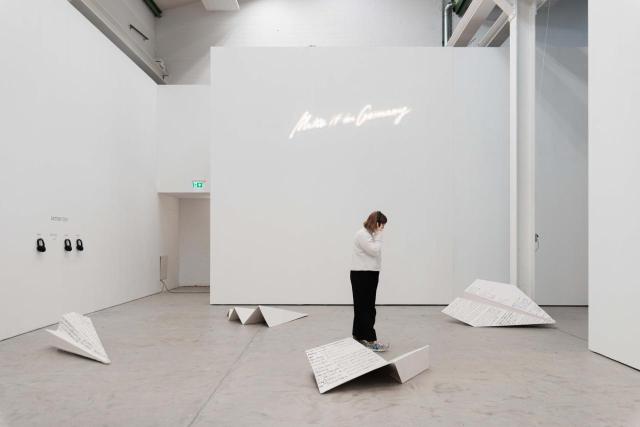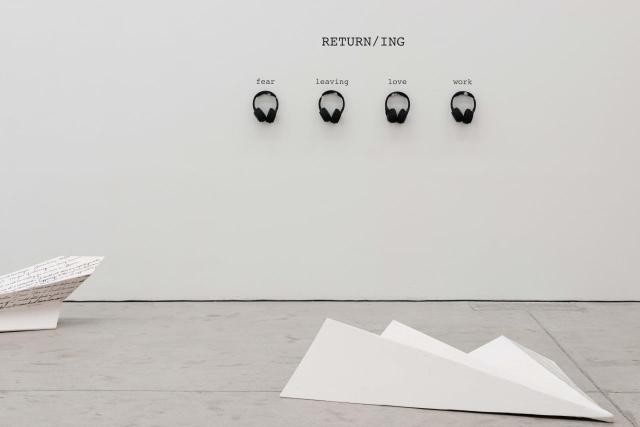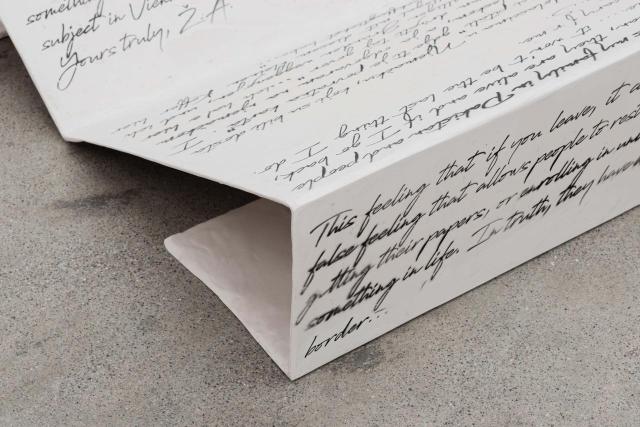R e t u r n / i n g
‘I do not see this as a return. I see it as an arrival.’
Yours truly, Žarko
Returning to Serbia
In 2019, after I moved to Germany, I sat down with my two aunts, Cvijeta and Branka, who migrated to Darmstadt (Germany) shortly after the war in Bosnia started. We recorded our conversation for a work titled 'Tante aus Deutschland' (HD video, 39'25''), in which we discussed their and my journey, feelings of responsibility, guilt, and thoughts of returning to Bosnia. One line from our conversation stuck with me: "The day before I die, I will go back to Bosnia—because you see, the time passes slower there, so I will gain seven more days." Though humorous, it contained a poetic truth. I found it difficult to define my own thoughts on the question of returning to Bosnia, so I reached out to friends and colleagues, members of the diaspora, to discuss the topic. This question holds great significance for anyone who has experienced migration but it is often seen as taboo.
The resulting project 'Return/ing' (2023) is a compilation of conversations with individuals about their experiences, hopes, and fears related to the idea of returning. The project reveals that the concept of returning is complex and multifaceted, with some viewing it as a political act, and others as a desire that may never be realized. 'Return/ing’ includes a sound work divided into four topics (Fear, Work, Leaving, Love), accompanied by heavy and immobile sculptures in the form of giant paper planes, spread across the exhibition space as if they were thrown by a giant hand. Each sculpture is covered in handwritten transcripts, creating the impression of a message left behind by someone. The selection of transcripts offer a glimpse into personal stories, highlighting shared concerns and overlapping perspectives among the interviewees.
The conversations also touch on broader issues, such as gender expectations, work conditions, family relations. These factors are often overlooked in theories of return migration, which also tend to neglect the importance of destination countries to the issue of return, whether it is the destination country in terms of arrival, or the destination country of return.
Whether someone feels safe in a certain country physically, financially, or if they are emotionally fulfilled, and feel included, is influencing the thoughts of return - both to return or not to return.
“The Return of Filip Latinovicza,”1 (1932) a novel by the Croatian author Miroslav Krleža, addresses precisely the aspects of personal experiences, micro histories, reasons and feelings I was looking for. Just like Filip, the main protagonist of the novel, a painter who returns to the Croatian town of Kaptol, the protagonists of "Return/ing" are also artists and cultural workers. Their stories depict precarious working conditions in the cultural field, which often make a free choice of place of residence impossible. They also share reflections on identity, on its permanence or changeability, and this indicates the problem of stability and belonging, but also interprets the changes that build identity over time and point to its instability and constructed nature.
Though countries of the Global North are often seen as desirable destinations, offering the promise of a better life, the thoughts or even fear of returning to one‘s native country are ever-present. The willingness of a country and its society to accept migrants heavily influences their opportunities upon arrival and may make the thought of returning inevitable. The notion of return is much more emotional and intimate; and the decision to return somewhere can be as hard as the decision to leave.
Selection from RETURN/ING
“This feeling that, if you leave, it counts as a success, is a completely false feeling that allows people to rest on their laurels after getting their papers, or enrolling in university, as if they have achieved something in life.
In truth, they have done nothing more than cross a border.
Yours truly,”
Jelena Fužinato, Returning to Bosnia
Kada sam se odlučla vratiti i napustiti Giessen, morala sam obaviti službeni Abmeldung i poništiti trenutnu vizu. Prvo sam nazvala Ausländerbehörde i žena na telefonu je bila jako iznenađena... "Sind Sie sicher? ...aber Sie haben noch ein Jahr lang Ihr Jobsuchen-Visum!” Na šta sam odgovorila: "Ich weiß, aber trotzdem nein. Danke schön. Sve najbolje,”
Tanja Šljivar, Returning to Bosnia
“The villages are full of houses built by people who left for seasonal work or whatever, hoping to come back, and of course they never came back. And it's interesting, you know... the opportunities have changed, the levels of education, and the way people have “succeeded," so to say, abroad is different, and despite that, the emotional moment and thought of going back to where you came from still exists.
Yours truly,”
Jelena Fužinato, Returning to Bosnia
“After dealing with all that bureaucracy, I felt like the place I really want to be in, doesn’t really want me there. Its like some kind of toxic relationship - when the country you want to be in doesn’t want you and you are the only one fighting for this relationship to survive. Yours truly, “
N.S.S., Return/ing to Pakistan
“U toku svih narednih dolazaka u Njemačku, koji su bili dosta česti, uvijek bi na granici pitali “Do you have your return flight ticket?" I uvijek bi me pitali na engleskom, a ja bih odgovorila na njemačkom "Hören Sie" i obožavam držati taj govor “...ich habe hier gelebt und bin aus freiwilligen Gründen weggezogen, und ich werde sicherlich nicht illegal mit diesem kleinen Koffer hier bleiben, wenn ich kein Rückflug ticket habe.
Sve najbolje”
Tanja Šljivar,Returning to Bosnia
“Vienna and Austria have given me everything, from the opportunity to study to shaping my artistic practice. In the end, I managed to shape my practice the way I wanted it to be, without compromise. They gave me a chance, that's the point.”
Yours truly, Žarko Aleksić
Returning to Serbia
“The fear of returning was strong because I didn't feel strong enough to withstand all that what would be waiting for me here in Bosnia. Yours truly,”
Jelena Fužinato, Returning to Bosnia
I would like to highlight my colleagues and friends who made the body of this project by sharing their stories and thoughts on return, especially: Jelena Prljević (Return/ing from the USA to Serbia); Jelena Fužinato (Return/ing from Germany to Bosnia); Irma Bajramović (Return/ing from Canada to Bosnia); N.S.S. (Return/ing from Germany to Pakistan); Žarko Aleksić (Return/ing from Austria to Serbia); Tanja Šljivar (Return/ing from Germany to Bosnia); Aline Martinez (Return/ing from Germany to Brazil).
Footnotes
1. Original title: Povratak Filipa Latinovica, 1932, Hrvatska akademska i istraživačka mreža – CARNET (e-book); Zagreb, 2018






